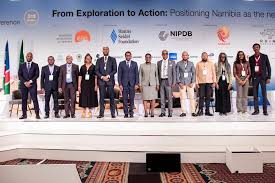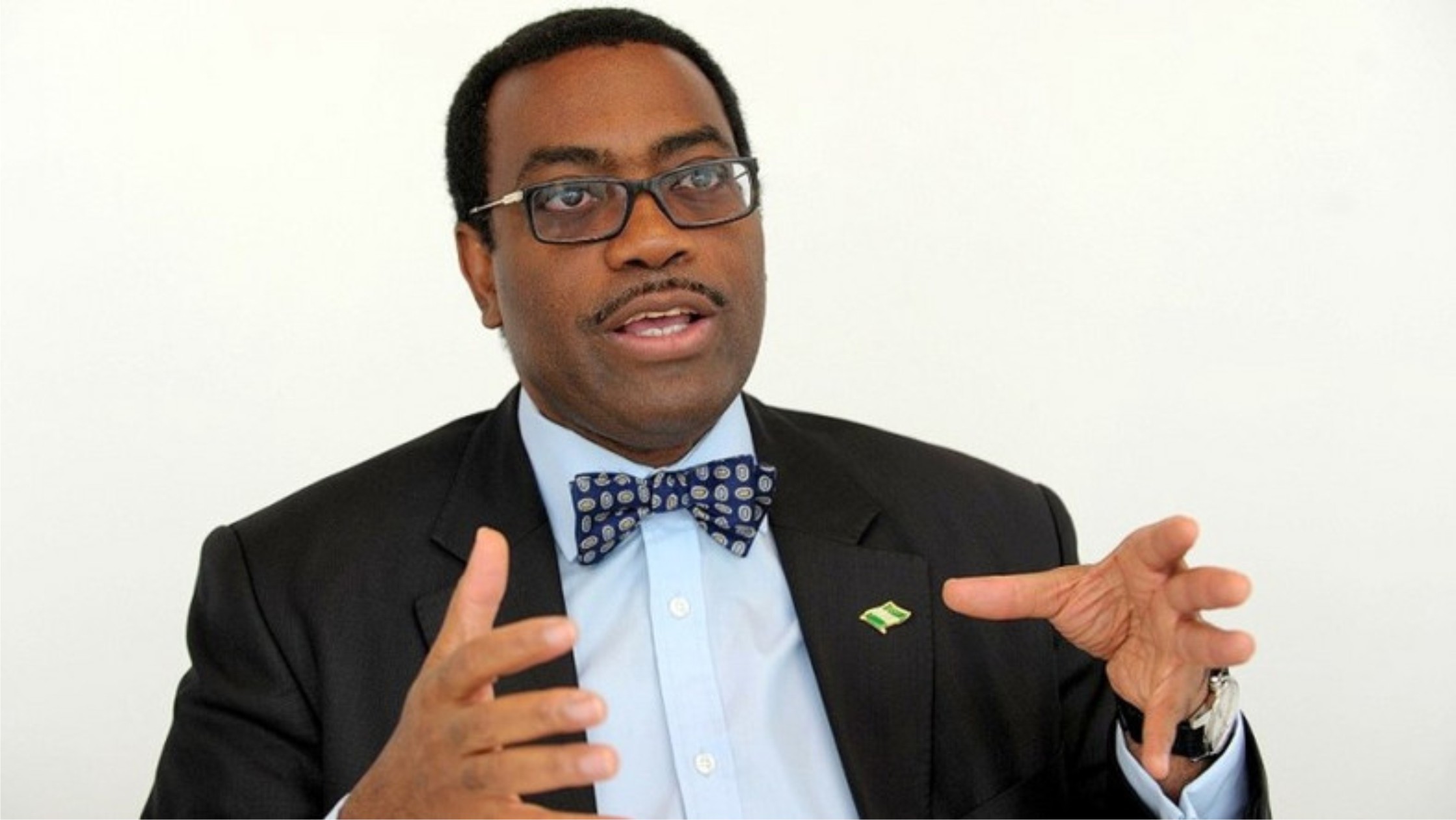Business
New Tax Law May Hinder Safety Investigations – NSIB

The new tax law regime seem not to be going down well with the Nigerian Safety Investigation Bureau (NSIB), Capt Alex Badeh, as the agency has expressed concerns over the potential negative impact of the newly passed Internally Generated Revenue tax law on the agency’s operations.
Director-General of NSIB, Capt. Alex Badeh, who made this known in a virtual interaction with journalists, noted that the agency is studying the law to determine its implications.
He said it is clear that the new tax law will affect the agency negatively, but noted that the Ministry of Aviation is actively engaging with the Federal Government to address these concerns before enforcement begins.
“It is a potential problem, but we are being proactive, and the aviation ministry is also very proactive, and let’s see how that plays out before enforcement,” Badeh said.
Despite the challenges, Badeh highlighted the strides NSIB has made in strengthening transportation safety. He described the implementation of the NSIB Establishment Act of 2022 as a game-changer, capable of significantly reducing incidents and accidents across all modes of transportation.
The NSIB boss emphasised the importance of cooperation from relevant agencies, including the Nigerian Maritime Administration and Safety Agency (NIMASA) to align with international safety standards.
According to him, NSIB has drafted key regulations necessary to navigate and ensure safety in Nigeria’s multimodal transport system.
“These regulations include the Maritime Safety Investigation Regulations 2025, Railways (Investigation of Accidents and Incidents) Regulation 2024, and Civil Aviation (Investigation of Air Accidents and Incidents) Regulations 2025.
“The regulatory frameworks are awaiting approval before the agency commences implementation”, he said.
On overlapping mandates with NIMASA, Badeh clarified that NSIB’s emergence fills a critical gap, ensuring independent investigations in line with global best practices.
He emphasized that NSIB is recognized by the International Maritime Organisation and collaborates closely with international counterparts.
The NSIB DG also revealed plans to onboard investigators specialized in the maritime and rail sectors by September and October.
“The bureau is engaging professionals, retirees, and personnel seconded from NIMASA and the National Inland Waterways Authority, as well as sending staff for training in the UK”, Badeh said.
He shared that NSIB already has a framework agreement with the Nigerian Navy to support maritime investigations, and expressed optimism that NIMASA will soon fully cooperate with NSIB, noting that the Nigerian Railway Corporation and National Inland Waterways Authority are eager to work with the agency.
Badeh stressed that NSIB’s investigations aim to determine causes and not assign blame, pointing that these investigations do not eliminate the possibility of civil, criminal, or administrative proceedings where warranted.
By: Corlins Walter
Continue Reading
Business
PETAN, Others Unveil ALCO, Get NCDMB’s Support … Mull Synergy With APPO, AU

Oil and gas service providers across the African continent have formed a continental forum called “African Local Content Organisation (ALCO)”.
A statement from the Corporate Communications of the Nigeria Content Development Management Board (NCDMB) says the aim of the new continental body is to foster collaboration among oil and gas service providers to deliver complex projects, create and retain value in the multi billion dollar continent’s energy sector, and grow the economy.
The Tide learnt that the organisation was unveiled on Wednesday, at the 2025 Namibian Oil and Gas Conference, which took place in Windhoek, the Namibian capital.
According to the NCDMB, membership of the organization is open to national associations of service providers in the oil and gas and mining sectors across African.
Chairman of the Petroleum Technology Association of Nigeria (PETAN) and member of NCDMB Governing Council, Mr. Wole Ogunsanya, introduced the organisation and explained that the body would serve as the private sector arm of the African Petroleum Producers’ Organisation (APPO), which comprises African governments engaged in oil and gas operations.
He underscored the pivotal and complimentary roles the private sector plays in building African local content, particularly in the development of competent human capacities, deployment of technologies and equipment, mobilization of private capital, and execution of projects.
Ogunsanya said the organisation would be launched officially at the 2026 African Union (AU) conference, in view of its strategic importance to the continent’s economy, noting that the body plans to institute close partnership with APPO and the African Energy Bank (AEB).
“The AEB was recently set up by APPO to fund big ticket energy projects across the continent and bridge the funding gap impeding the development of key energy projects.
“Members of ALCO are well positioned to execute key scopes of the projects that would be financed by the Energy Bank. This would guarantee value and spend retention in the continent, helping to catalyze the economy”, he said.
Other key objectives of the forum according to the PETAN boss include, facilitating exchange of knowledge and capacities among African energy service companies, enabling collaboration on projects, and growing Africa’s gross domestic product (GDP).
“Through the forum we can carry out benchmark studies, join forces to solve industry problems. It’s also a forum where African energy service companies can link up and find partners across the continent.
“It would enable the exchange of equipment and partnership on major industry projects. As Namibia or any other African country develops energy projects, you can count on your African brothers to share our over 70 years knowledge and experience in the oil and gas industry.
“14 African countries have already joined the organisation, including Nigeria, Morocco, Senegal, Angola, Democratic Republic of Congo, etc”, the PETAN Chairman added.
The Statement from the Directorate of Corporate Communications of the Board further stated that while the PETAN Chairman is serving as the interim Chair of the ALCO, Ibrahim Talla from Senegal is the Secretary.
The Statement read in part: “The new organisation has received endorsement from the Executive Secretary, Nigerian Content Development and Monitoring Board (NCDMB), Engr. Felix Omatsola Ogbe, who described it a key platform for advancing African local content.
“Represented at the Namibian event by the Director, Corporate Services, Dr. Abdulmalik Halilu, the NCDMB boss referenced the vital roles the Board played in the establishment of the African Energy Bank, assuring that it would continue to promote African local content and extend every possible assistance to the ALCO”.
By: Ariwera Ibibo-Howells, Yenagoa
Business
AON Lifts Ban On Freed Ibom Air Passenger

The lifetime ban imposed on an Ibom Air passenger, Comfort Emmanson, who was earlier penalised for unruly conduct, has been lifted by the Airline Operators of Nigeria (AON).
AON in a statement issued by its spokesperson, Professor Obiora Okonkwo, which was obtained by aviation correspondents, announced that the decision was made after an appeal from the Minister of Aviation and Aerospace Development, Festus Keyamo.
Okonkwo in the statement explained that the operators agreed to lift the sanction after weighing all relevant factors, such as Emmanson’s expression of remorse, the withdrawal of the complaint, the dismissal of charges, and her release from custody.
He praised the Federal Government for introducing a retreat to retrain Aviation Security staff and airline crew on managing disruptive passengers.
AON also called on aviation agencies to enhance public awareness about the risks and legal repercussions of unruly behaviour, as provided in Section 85 of the Civil Aviation Act, 2022, and Part 17 of the Nigeria Civil Aviation Regulations, 2023.
Such conduct, he said, covers assault or threats to crew members, refusal to follow safety instructions, smoking in restricted areas, fighting, disorderly actions, or interfering with aircraft equipment.
The AON stressed that pilots-in-command and AVSEC officers have the authority to restrain and de-board disruptive passengers, handing them over to competent authorities to ensure flight safety and order.
Okonkwo also confirmed that members shall cooperate with the relevant aviation agencies and participate in the retraining retreats on how to handle cases of unruly and disruptive passengers as proposed by the minister.
By; Corlins Walter
Business
Ex-NIMASA DG Harps On Blue Economy Importance

A former Director-General of the Nigerian Maritime Administration and Safety Agency, Dr. Ade Dosunmu, has emphasised the importance of strategic reforms and stronger collaboration among agencies and stakeholders in unlocking the vast potential of Nigeria’s blue economy.
In a lecture titled “Blue Economy and Economic Diversification: Opportunities and Challenges” at the National Institute for Policy and Strategic Studies in Jos, Plateau State, Dosunmu highlighted the sector’s capacity to drive economic growth, job creation, and sustainable development.
He said, “the blue economy offers a unique and timely solution to Nigeria’s perennial dependence on hydrocarbon resources.
“With strategic reforms, robust policies, and stronger collaboration among agencies and stakeholders, the sector can significantly boost national revenue and secure a prosperous future for our country.”
He explained that this call to action underscores the urgent need for Nigeria to diversify its economy and reduce its over-reliance on hydrocarbons.
The blue economy, as outlined by Dosunmu, has the potential to transform Nigeria’s economic landscape.
By harnessing the opportunities in this sector, the country can create new revenue streams, foster sustainable development, and promote economic resilience, he explained further.
Dosunmu also emphasized the need to address key challenges facing the blue economy, including regulatory gaps, environmental threats, and capacity constraints.
The lecture was part of a broader engagement that featured papers on foreign direct investment, sustainable coastal tourism, and fisheries and aquaculture in Nigeria’s blue economy.
The NIPSS, Nigeria’s foremost policy think-tank, aims to develop top-level leaders and policymakers capable of formulating and implementing strategies for national development.
The lecture noted the blue economy’s potential, which includes driving economic growth, job creation, and sustainable development. The challenges, however, include regulatory gaps, environmental threats, and capacity constraints.
Some of the solutions include strategic reforms, robust policies, and stronger collaboration among agencies and stakeholders.
-

 Business3 days ago
Business3 days agoAfDB Secures N3.4trn For Agro-industrial Processing In Nigeria
-
Business3 days ago
Investment Flow To Nigeria Drops By 70%
-

 Featured3 days ago
Featured3 days agoNigeria Accounts For 70% Of 11m Illegal Arms In W/Africa
-
Business3 days ago
CBN Plans Legal Action Against FX Contract Violators
-
Politics3 days ago
APC Doesn’t Have Money, Relies On Elected Members For Funds – NWC Member
-
Politics3 days ago
Rivers LG Polls: IPAC Asks Political Parties Not To Participate
-

 News3 days ago
News3 days agoNCos Frees 28,149 Inmates After Payment Of Fines, Compensation In 2024
-
News3 days ago
Be Cautious About AI, VC Tells Scholars

